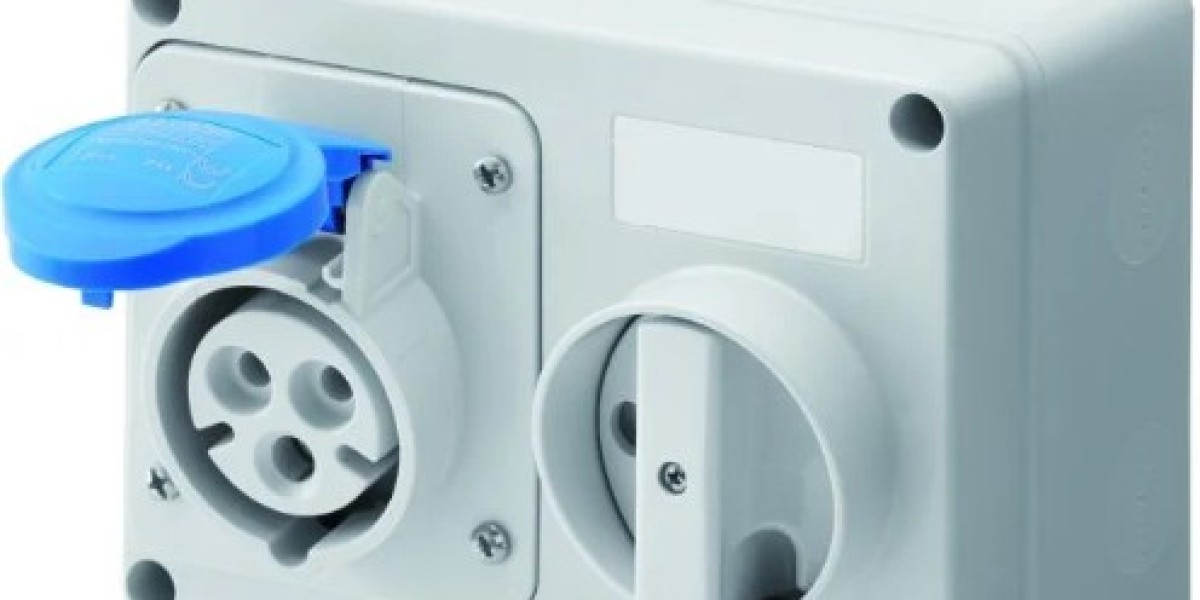As global industries accelerate automation and renewable energy projects surge, reliable electrical connectivity transcends convenience—it becomes a fundamental operational pillar. Within this landscape, selecting the right connector is critical, and the Industrial Plug stands apart from standard household counterparts. Unlike domestic plugs designed for intermittent, low-stress use, industrial versions are engineered for relentless demands, offering unmatched robustness where failure is not an option.
Strength Beyond Surface: Material and Construction
Standard plugs often utilize basic thermoplastics and simple brass contacts, sufficient for bedside lamps but inadequate for high-current machinery. Industrial plugs employ reinforced engineering polymers resistant to oils, solvents, and UV degradation. Contact points feature precision-machined alloys like beryllium copper with silver plating, maintaining conductivity under vibration and preventing arc faults. This focus on material integrity prevents deformation, melting, or corrosion—common failure points in demanding settings like manufacturing floors or coastal wind farms facing salt spray.
Safety Engineering: Guarding Against the Unpredictable
Where standard plugs offer basic insulation, industrial counterparts integrate multi-layered protection. Key differentiators include:
Mechanical Locking: Twist-lock or bayonet mechanisms ensure connections remain secure despite movement or vibration, eliminating accidental disconnections that halt production lines or disable critical equipment.
Environmental Sealing: Advanced gasket systems achieve high ingress protection ratings, repelling water, dust, and particulates. This is vital for food processing plants requiring washdowns or construction sites battling mud and debris.
Thermal Management: Built-in heat dissipation channels and overload safeguards prevent terminal overheating, a frequent cause of fires in overloaded standard sockets during sustained high-load operations.
Functional Versatility for Complex Needs
Standard plugs handle fixed voltage applications. Industrial plugs, however, offer configurable solutions:
Voltage & Phase Adaptability: Modular designs support single-phase to multi-phase power systems (e.g., 3P+N+E), essential for heavy machinery, data centers, or electric vehicle charging infrastructure.
Integrated Intelligence: Some industrial variants incorporate monitoring sensors, enabling remote tracking of power consumption, temperature fluctuations, or connection integrity—proactively alerting maintenance teams before faults occur.
Specialized Formats: Watertight connectors, high-amperage variants, and explosion-proof designs cater to niche environments like mines, chemical plants, or offshore platforms where standard plugs pose significant hazards.
The Cost of Resilience: Investment vs. Total Ownership
While industrial plugs carry a higher initial price, their total lifecycle cost is often lower. Standard plugs under industrial strain require frequent replacement due to cracked housings, corroded pins, or melted terminals. Industrial connectors endure years of heavy use, minimizing downtime costs, replacement expenses, and safety incident risks. Their reliability ensures continuous operation in 24/7 facilities like semiconductor fabs or hospitals, where unexpected power interruptions result in substantial financial and operational losses.
Adapting to Global Energy Shifts
Current trends underscore their necessity:
Electrification Expansion: As construction fleets transition from diesel to electric (excavators, cranes), robust onsite charging demands industrial-grade connectors resistant to weather and physical abuse.
Decentralized Power: Microgrids and renewable installations (solar/wind farms) utilize industrial plugs for interconnectivity between inverters, batteries, and distribution panels in harsh outdoor environments.
Supply Chain Resilience: Recent disruptions highlight the need for dependable infrastructure. Industrial plugs ensure material handling equipment (AGVs, forklifts) operates flawlessly in logistics hubs facing increased throughput pressure.
Choosing Wisely: Beyond the Basic Outlet
Selecting the appropriate connector requires assessing environmental exposure, electrical loads, safety regulations, and duty cycles. Standard plugs suffice for controlled office environments. However, workshops handling welding equipment, outdoor festivals powering stages, docks operating cranes, or laboratories running sensitive instruments necessitate the inherent resilience of industrial designs.
Sustainable Performance Through Durability
Longevity is an often-overlooked sustainability benefit. Industrial plugs, built to last decades, reduce electronic waste compared to frequently replaced standard units. Their durable construction aligns with corporate ESG goals by conserving resources and minimizing landfill contributions.
Partnering for Persistent Power
As operational demands intensify and environments grow more challenging, compromising on electrical connectivity invites risk. Understanding the fundamental differences between standard and industrial connectors empowers smarter, safer infrastructure investments.
Discover engineered solutions designed for relentless performance. Explore Nante's commitment to durable, intelligent electrical connectivity at www.nante.com, where innovation meets the rigorous demands of modern industry.







